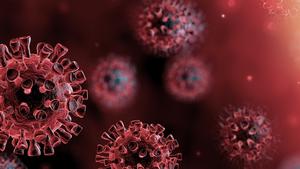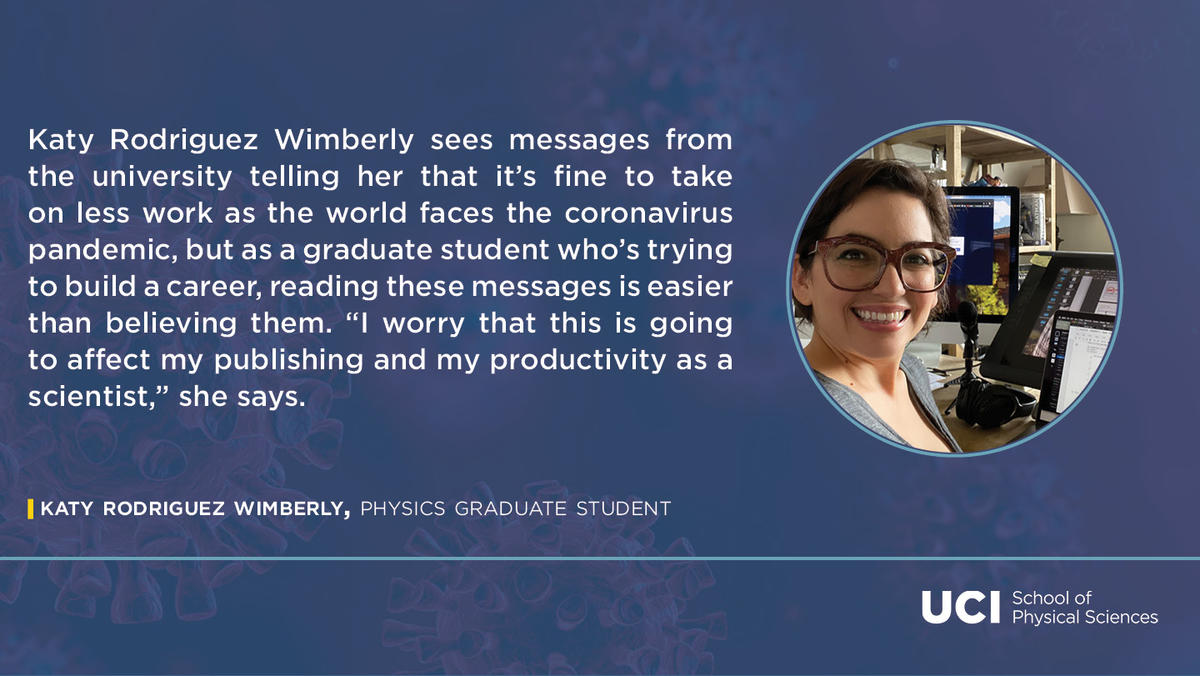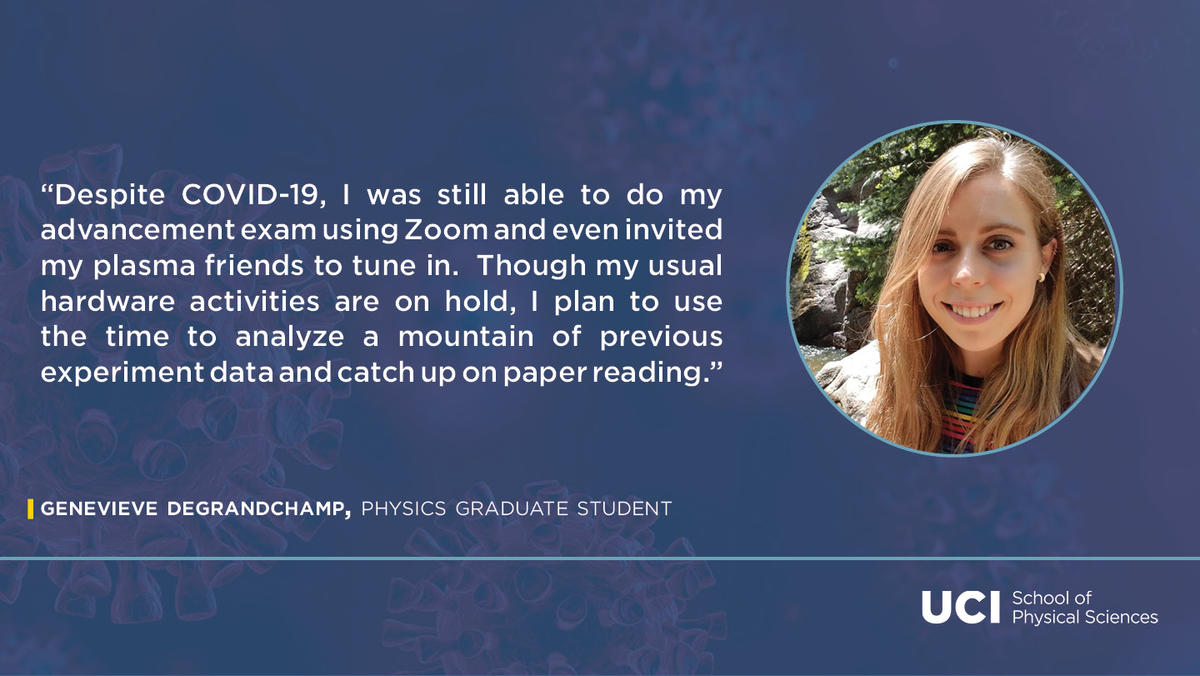Physical Sciences in the time of coronavirus

Marquise Crosby is fighting coronavirus
These days there are more sounds than people at the School of Physical Sciences. The Infinity Fountain splish-splashes outside Rowland Hall, and dry leafs crackle as they bounce across the pavement in the wind. There’s the endless exhale of ventilation machinery at Frederick Reines Hall, and birds sing out and fall silent.
Doors, though, still click open and click shut, and one of the few people opening and closing those doors is biochemist Marquise Crosby. Crosby lives at UCI in the Campus Village, close to the Natural Sciences I building where he works as a first-year graduate student in the Department of Chemistry. His sister in Dayton, Ohio just lost her job because she works in a daycare center, and many students like him received orders from the university to leave campus, all to help halt coronavirus’s monstrous march.
But Crosby did not have to leave his home, because he’s helping fight coronavirus at UCI. “We’ve just been granted essential personnel access,” he says.
Crosby’s part of Professor Rachel Martin’s lab, which is at work unraveling how coronavirus works in its beginning stages, and Crosby’s looking for a way to stop coronavirus in its tracks before it can completely infect someone. He works on the third floor of Natural Sciences I, and there, like the rest of us, he stands at least six feet away from the people around him.
Crosby never left campus for another reason. To get back to his family in Ohio, he explains, he has to travel through two separate airports, risking exposure to the virus. “And I have a three-year-old nephew,” he says. So, on campus he’ll remain, opening the door to Natural Sciences I to go fight coronavirus.
Studying how stars are born in the time of coronavirus
COVID-19 is editing our daily routines, even if you do not have the disease. Katy Rodriguez Wimberly is an astrophysicist in the Department of Physics and Astronomy who studies why some galaxies in our universe no longer make new stars, and she’s one of many who’re coping with the new version of reality.
 Rodriguez Wimberly is a fourth-year doctoral student, and usually she does her galaxy research on campus in Frederick Reines Hall. Now, she’s self-quarantining and working from home in Pomona. Her husband, Kris, is also now at home, and the two are busy taking care of their eight-month-old daughter, Zion. Rodriguez Wimberly uses an app on her phone called ATracker to help her ensure she spends enough time working every day — but even with ATracker, quarantining is not easy. “I only did three hours of work today,” she says. “And I only did science for an hour.”
Rodriguez Wimberly is a fourth-year doctoral student, and usually she does her galaxy research on campus in Frederick Reines Hall. Now, she’s self-quarantining and working from home in Pomona. Her husband, Kris, is also now at home, and the two are busy taking care of their eight-month-old daughter, Zion. Rodriguez Wimberly uses an app on her phone called ATracker to help her ensure she spends enough time working every day — but even with ATracker, quarantining is not easy. “I only did three hours of work today,” she says. “And I only did science for an hour.”
She visits her social media pages and sees how others are faring. “I see single peers who’re like ‘I got 10 hours of work done today, it’s fantastic!’ And I’m like, ‘oh boy, I only wrote for an hour’,” she says.
Rodriguez Wimberly sees messages from the university telling her that it’s fine to take on less work as the world faces the coronavirus pandemic, but as a graduate student who’s trying to build a career, reading these messages is easier than believing them. “I worry that this is going to affect my publishing and my productivity as a scientist,” she says.
Long distance test taking
Genevieve DeGrandchamp is a third-year doctoral student in the Department of Physics and Astronomy who studies plasma, and until last Wednesday she never thought she would take her PhD advancement exam at UCI while sitting by herself in a room in San Diego. Her backpack sat by her door waiting for her to grab it and go to the exam, but as the coronavirus pandemic continued its march across the planet, it became clear that DeGrandchamp would be taking her exam online.
It was 11a.m. on the 18th, and DeGrandchamp logged on to Zoom and met her five dissertation committee members — along with about 12 spectators who also study plasma, and who she calls her “plasma friends.” She took her test, and it lasted about an hour. She felt good answering the questions that came her way, but it caught her off guard when she couldn’t see her committee members’ faces after she answered their questions. “Over Zoom, it is hard to know if you’ve answered a question. There’s just a silence instead of that ‘OK, gotcha’ kind of look that you get in person.”
DeGrandchamp passed her exam, and she became a PhD candidate. But now, a new test is emerging: working from home. “The productivity is a little come and go,” DeGrandchamp says. “But it’s getting better.” What she says helps her get in the groove is to put on songs by jazz pianist Dave Brubeck. “It’s not like boring lo-fi playlists from YouTube, yenno?”
